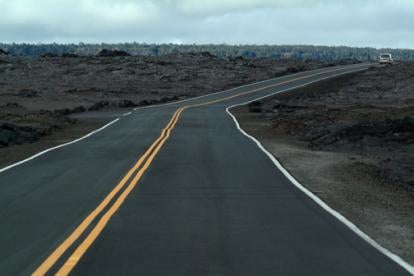Highway access can be one of the most important property rights a landowner has. When access changes, the highway’s classification can dictate whether the landowner has a claim to just compensation. In these instances, landowners may be inclined to compel the Wisconsin Department of Transportation (“WisDOT”) to reclassify a highway project in such a way that would entitle them to just compensation for the change in access.
A recent Wisconsin per curiam opinion provides some insight into how courts may approach these thorny issues. Manthe v. State of Wisconsin Department of Transportation, No. 2017AP1598, unpublished slip op. (WI App Feb. 7, 2019)(per curiam).
In Manthe, the plaintiff’s farm was two non-contiguous parcels divided by U.S. Highway 51. The 250-acre parcel to the west contained the family home, milking operation and all the equipment storage space. The 77-acre parcel to the east housed the farm’s stock animals and a 13,200 square foot barn.
As part of a highway improvement project, WisDOT expanded a portion of Highway 51 from two lanes to four and removed the intersection Manthe previously used to get farm equipment from one parcel to the other. WisDOT also acquired a combined 9.99 acres from Manthe through eminent domain. After the acquisition, Manthe’s route between his parcels increased by approximately 2 miles.
Manthe challenged the amount of just compensation.
Manthe sought a “writ of mandamus”—essentially asking the circuit court to compel WisDOT to designate Highway 51 as a freeway. The circuit court denied that request. On appeal, Manthe argued that because the improved portion of Highway 51 met the statutory definition of “freeway,” WisDOT failed to designate Highway 51 as a freeway.
Examining Wis. Stat. § 84.295(3), the Court of Appeals (“COA”) held the statute granted WisDOT discretionary authority to classify highways. Accordingly, WisDOT could not be compelled to reclassify Highway 51 as a freeway.
Next, Manthe argued that Wis. Stat. § 84.295(3) violated his right to equal protection by giving WisDOT discretion to expand a controlled-access divided highway without classifying that highway as a freeway. Of note, a loss of access to a freeway would have entitled Manthe to just compensation while a loss of access to a controlled-access highway would not.
The COA found that equal protection was not a proper claim because landowners abutting freeways and landowners abutting controlled-access highways were not similarly situated. Moreover, the COA stated, “as long as DOT does not leave such a landowner without any access to their land, he or she is not entitled to compensation.” Manthe, ¶ 27 (citing Hoffer Props., LLC v. DOT, 2016 WI 5, ¶¶ 31–37, 366 Wis. 2d 372, 874 N.W.2d 533).
Lastly, Manthe claimed he was entitled to damages for the lengthened route of travel as a result of the project because the new route was more dangerous and he faced increased travel time when going between the west and east parcels. However, the COA rejected the “increased dangerousness” theory as insufficiently developed. The COA also held that Hoffer meant Manthe could not claim just compensation for the change to his access under the circumstances. Therefore, the COA held that all of the orders of the circuit court in these respects are affirmed.
As this decision demonstrates, highway access issues can be exceedingly complex. Wisconsin landowners facing the use of eminent domain should make sure that their access rights and right to just compensation are protected from the outset.




 i
i

